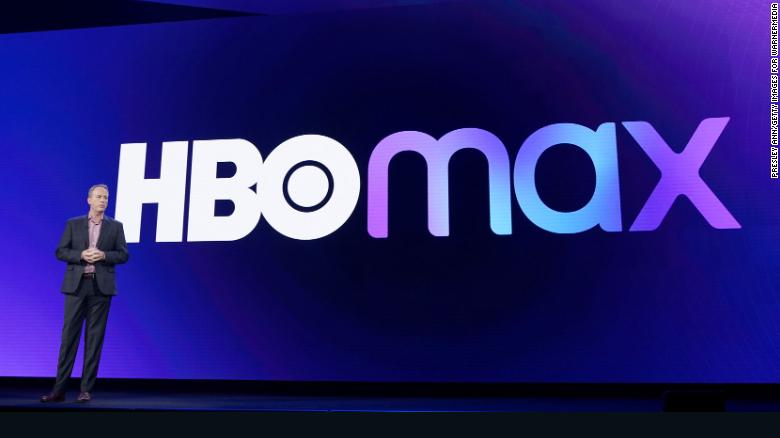We all love Netflix, don’t we? It’s not perfect, but it kickstarted a wonderful avenue of consuming entertainment. Over the past few years, Netflix became a mass media empire to be reckoned with, amassing a massive library of content catering to all kinds of demographics. However, the tides are starting to change. In the near future, titans such as WarnerMedia (AT&T), Disney, NBCUniversal (Comcast), and Apple are launching their own iterations of the Netflix business model within the next year. They want a slice of the pie Netflix is eating and they want it badly. This turn of events is what many people call The Streaming Wars.
WarnerMedia’s HBO Max will leverage all the content from all the company’s subsidiaries including HBO, Cartoon Network, TNT, TBS, DC, Cinemax, and more. Disney+ is flaunting their strong brand recognition with a ton of Marvel, Star Wars, Pixar, NatGeo, and obviously Disney content. Peacock, while launching as a free ad-supported service like Sony Crackle, aspires to do something similar to both HBO Max and Disney+, compiling all existing franchises and new IP from NBCUniversal. AppleTV+ is focusing primarily on original IP while putting an emphasis on quality over quantity.
Image courtesy of The Walt Disney Company. Please don’t sue us, Mr. Iger.
What matters most is that third-party support for Netflix, the once safe haven for all entertainment companies to distribute their new shows and movies, is going to ultimately significantly drop. It won’t be instantaneous, considering contracts can take years to expire, which explains why Disney+ won’t have the entire MCU catalog at launch. We also have Sony Pictures Entertainment acting as an outlier of the Big Five. Sony already has their streaming service, Sony Crackle. However, that’s a free platform and thus usually has a lot of…let’s say low-tier content. Outside of Crackle, Sony produces exclusive content for multiple platforms. Netflix, Hulu, HBO Max, they don’t care.
You can find some entertaining stuff on here. Not good stuff, but…stuff.
Could Sony establish a paid streaming service? Honestly, that’s pretty unlikely considering Crackle is presumably raking in a healthy amount of ad revenue money. The more people watch Crackle, the more money Sony makes. It’s a low-profile service, but Sony’s doing fine with producing higher budget shows on bigger platforms. If they do happen to make their own premium platform and move all their shows and movies there, they would just make a Premium version of Crackle. The likelihood of that is low as there are no reports indicating them of doing so. Also, Sony is in no dire financial need thanks to PlayStation and their other businesses performing well. I discount Viacom as they are in the process of merging with CBS, who has their own paid streaming service, CBS All Access.
Now that we’ve established all the big players in the looming streaming wars, what should we expect the outcome to be? Will any service “die”? This war isn’t necessarily about killing the incumbent leading streaming service. These companies recognize that there is a market that would watch their content on a regular basis. Netflix has well over 100 million subscribers and I don’t see them shrinking by a considerable amount, if at all. Maybe users that subscribe to Netflix Kids solely for family-friendly entertainment would flock to Disney+. However, the parents would probably be binge-watching something catered for them anyway. Netflix knows that exclusives matter and respect the vast majority of subscribers on the platform almost entirely consume the mature entertainment, which they excel in producing.
Here’s Tim Apple talking to a group of investors about AppleTV+. Isn’t that just the sweetest thing?
AppleTV+, Peacock, and HBO Max are also going to have a primarily mature audience in mind. Whereas Disney+ will focus on catering to the family with its accessible library of films and television series for children and adults. Hulu will behave as the adult counterpart to Disney’s streaming empire. While AppleTV+, Peacock, and HBO Max will have their own children’s entertainment, they’ll be the appetizers to the greater entree. While all of these platforms cater to similar demographics, they each have specific strategies in mind. AppleTV+ is notable for having the smallest library of content as *all* of their shows and movies are exclusives. AppleTV+ places an emphasis on quality over quantity and thus has the lowest barrier of entry out of all the premium streaming services.

Here’s another executive from WarnerMedia talking to investors about HBO Max. Meh…whatever.
HBO Max is the most expensive platform of them all, priced at $15 per month. AT&T revealed a ton of information on HBO Max and the service seems pretty damn promising. Every DC film and TV show, classic films from the TCM catalog, big IP like Game of Thrones, Looney Tunes, and South Park, exclusives from high-profile creators like J.J. Abrams, the gentrification of Sesame Street, and more are coming to HBO Max at launch. Not only will the library be appealing to consumers, but the software itself will come with a nice gamut of features. Such features include an actual catering feature and shared recommendations with other accounts to ensure the content you want to watch is available to you. Unlike Netflix where you just keep scrolling in hopes you find something interesting.
/cdn.vox-cdn.com/uploads/chorus_image/image/65262553/peacock.0.png)
Peacock could end up being another Crackle, but my wallet is just happy it’s free.
Now let’s talk about Peacock. Well, the news just broke that it’s a free service supported by ad revenue. Just like Sony Crackle except with a larger backing behind it. NBCUniversal doesn’t have a catalog of movies and TV shows as appetizing as either Warner Bros or Disney. However, NBC is making some compelling acquisitions with both The Office and Parks and Recreation being Peacock exclusives. There are also original exclusives such as reboots of Battlestar Galactica and Saved by the Bell which would undoubtedly gravitate people to the service. We don’t know how long Comcast intends on keeping the free with ads model with Peacock, but it does lessen the financial impact on consumers’ wallets when the Streaming Wars enter full throttle.
So what will unfold when all of these services hit the market? Is Netflix going to go under? I see that as unlikely. Even the most conservative market analysts believe Netflix is a mainstay despite their bloating debt situation. What will change is how we consume entertainment in the next five years. Eventually, Disney will have the entire MCU franchise on Disney+ and their original series will make bank for them. Hell, Disney+’s launch lineup is pretty damn solid as is and the service itself will have a very strong subscriber pull. Netflix, as mentioned earlier, will solidify themselves as the platform where mature, original content flourishes.
/cdn.vox-cdn.com/uploads/chorus_image/image/65412061/irishman3.0.jpg)
Martin Scorcese may hate Marvel, but at least his movies are amazing.
In this year alone, Netflix released multiple critically acclaimed films both in theatres and streaming: The Irishman, Uncut Gems, and Marriage Story are all 2019 films that could generate Oscar buzz. TV series such as The Witcher are slated to close out the year. Netflix’s own exclusive catalog outweighs the competition and is thus treated as a standard in the industry. The entertainment industry has embraced Netflix as a legitimate film and television distributor in the business, and could classify the company as one of the Big Five (Warner Bros, Disney, Sony, Universal, and Paramount). Netflix has and will remain to be a safe investment for consumers as the platform has an enormous ocean of content that continues to expand as the years go on.
If there was any service that could die in the next decade, it would be AppleTV+ because of the company’s consistent track record of dumping services when they don’t turn out great. The reviews for most of AppleTV+’s shows indicate a mixed bag of material. See, the most expensive-looking project, got lukewarm reception. The Jennifer Aniston show also criticized for being thematically inconsistent. With such a limited library of content, you gotta have a competent lineup and it appears Apple dropped the ball. There might be some subscriber boost in 2020 given a lot of people will buy Apple products which come with a free year of the service, but there won’t be a lot of intrigue from consumers. I anticipate it falling in 2024-2025 unless Apple turns the ship around.
WATCH THIS SHOW! SEASON 2 HYPE!
Services you should keep an eye on would have to be Disney+, HBO Max, and Peacock. I include Peacock by virtue of it being free while having a substantial backing behind it. Warner Bros is a huge company like Disney, so they can easily boast their size like Disney and Netflix. Disney+ is basically a heavyweight with its powerful brand recognition alone. Other existing services like Hulu and Amazon Video are also safe and I actually recommend subscribing to both if you’re an entertainment junkie. Amazon has some awesome stuff like The Boys and The Marvelous Mrs. Maisel and Hulu has a lot of hidden gems and will eventually have more 20th Century Fox stuff that’s too mature for Disney+. Also, Hulu’s the only service that has the entire King of the Hill series and that’s always a plus in my book. Watch that show. It’s great.

Here’s an obvious stock image of a guy who has it all. A nice house, two wives, and a 2008 flat-screen.
The Streaming Wars are going to be interesting to see, but one thing for certain is that the entertainment industry is in the middle of a transition. It won’t dismantle other industries (well, maybe traditional cable television to an extent), though it will transform how we watch movies and TV. Instead of waiting for the right times or which channel to tune into, consumers have the autonomy to do whatever they want whenever they want on their TVs. Now, big industry players are taking note and want our time and money badly. Who will prevail? Who will rise? Who will fall? It’s up to us, and I find that more empowering than daunting.

You can trust Roger Ebert and he’s giving you the thumbs up. So that’s good! Congratulations!
If this is too much for you, it’s best that you educate yourself and decide what you want to watch before jumping on a yearly subscription you might end up hating. Online reviews and word of mouth are always great indicators of quality and there’s often that one show or two that absolutely captivates you. This is an important era for television and film and we need to participate wisely or else we will soon regret it. Reward quality and ignore the lack thereof. That is how this war will end up serving consumers well.

